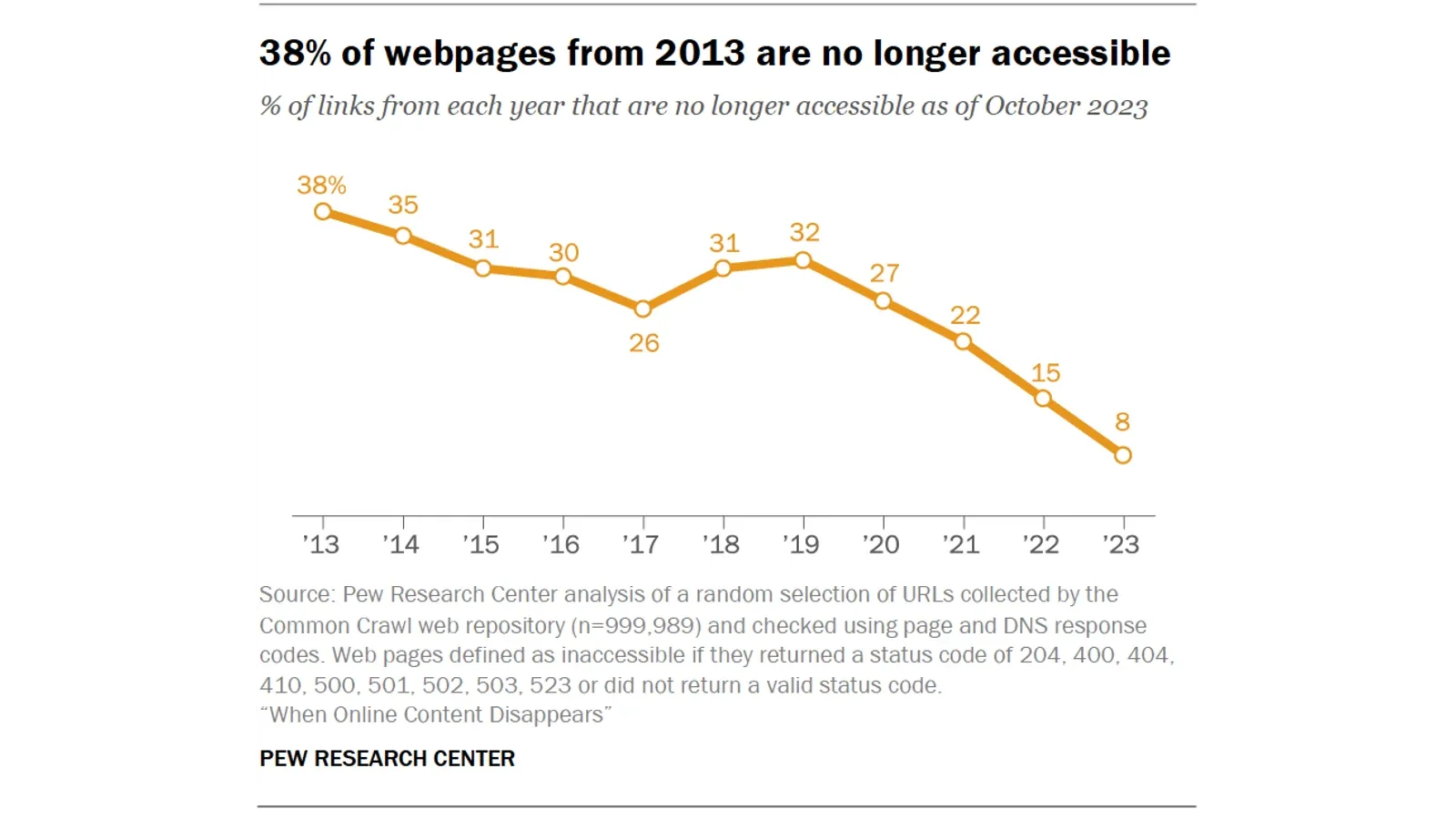The Disappearing Web: a study highlights loss of online content
The study, titled When Online Content Disappears, analyzes website snapshots collected between 2013 and 2023 to estimate the volume of webpages no longer accessible.

A new report by the Pew Research Center, published on May 17, 2024, sheds light on a concerning trend: the disappearance of online content. The study, titled When Online Content Disappears, analyzes website snapshots collected between 2013 and 2023 to estimate the volume of webpages no longer accessible.
A Quarter of Webpages Lost: The study reveals that a significant portion of the historical web is no longer accessible. According to the report, roughly 25% of webpages sampled from the period 2013-2023 are no longer available as of October 2023.
Disappearing News and Reference Content: The report highlights the impact on news and reference content. An estimated 23% of news pages and 21% of government websites included in the study contained links to inaccessible references. This suggests a potential loss of valuable historical information and resources.
Social Media and Content Disappearance: The study indicates a rapid disappearance of content on social media platforms. According to the report, as much as 20% of tweets may vanish from a platform within a few months of being posted.
The report identifies several reasons for online content disappearance:
Individual Page Deletion: Website owners may choose to delete individual pages due to outdated content, changes in focus, or broken links.
Website Discontinuation: Entire websites may shut down or move to a different domain, rendering all their content inaccessible.
Technical Issues: Technical problems, such as server failures or changes in website structure, can also lead to content disappearing.
The disappearance of online content can have a number of negative consequences:
- Loss of Historical Record: Inaccessible webpages can create gaps in the historical record, making it difficult to research past events or trends.
- Accessibility Challenges: Disappearing content can create accessibility challenges for individuals who rely on online resources for education, research, or government information.
- Erosion of Trust: The frequent disappearance of content can erode trust in the internet as a reliable source of information.
The Pew Research Center report highlights the importance of web archiving initiatives. Archiving organizations play a crucial role in preserving historical webpages and ensuring long-term access to online content.
The issue of disappearing content raises questions about the long-term viability of the web as a reliable information repository. Further research is needed to develop strategies for preserving online content and ensuring its accessibility for future generations.
The Pew Research Center study sheds light on a significant challenge facing the internet: the disappearance of online content. The loss of historical information, reference materials, and social media content can have a negative impact on research, education, and trust in the web as a whole. Understanding the causes of disappearing content and supporting web archiving initiatives are crucial steps towards ensuring the long-term accessibility and integrity of online information.



